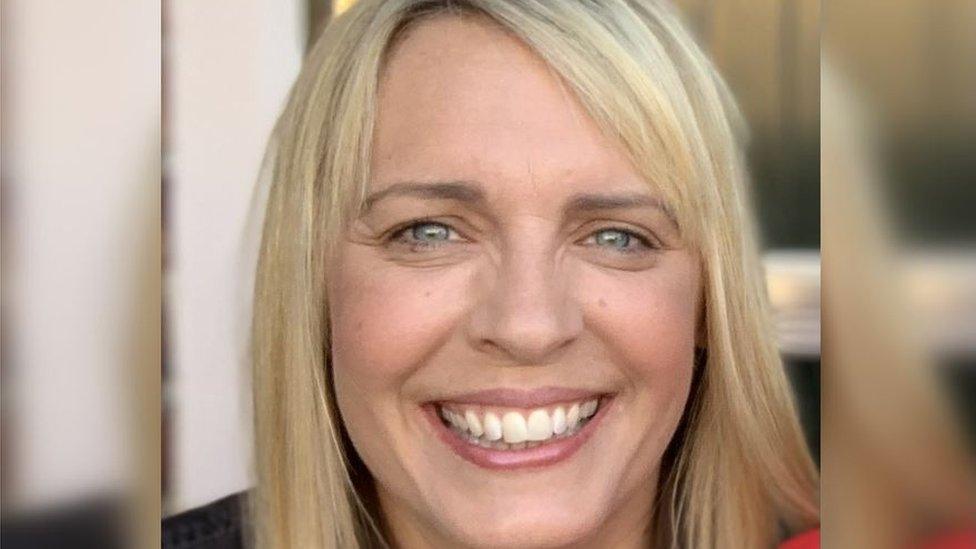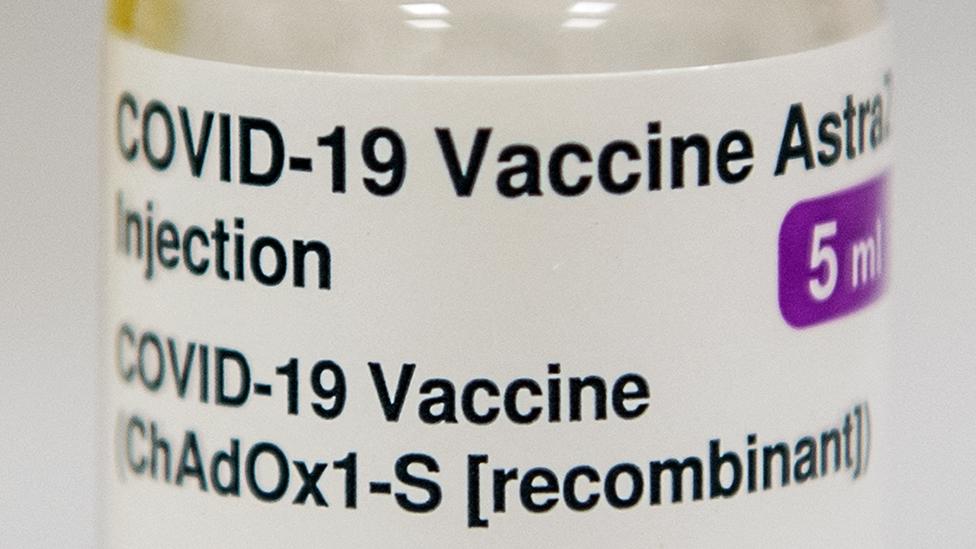Lisa Shaw: Vaccine role in BBC presenter's death to be probed
- Published

Lisa Shaw joined BBC Radio Newcastle in 2016 and had enjoyed a successful career in commercial radio
A coroner will consider if the cause of BBC presenter Lisa Shaw's death might have been complicated by her having had the AstraZeneca Covid-19 vaccine.
Her family said the 44-year-old was treated for blood clots days after her first jab. She died on Friday.
An interim fact-of-death certificate lists the vaccine as one of the possible factors being considered.
The Medicines and Healthcare Products Regulatory Agency (MHRA) said vaccine benefits exceed risks for most people.
The BBC has seen the interim fact-of-death certificate issued by Newcastle's senior coroner Karen Dilks.
It confirms an investigation into Ms Shaw's death will be held and lists a "complication of AstraZeneca Covid-19 virus vaccination" as a consideration.
The document does not determine a cause of death - that will not be issued until the investigation has been completed.
The BBC Radio Newcastle presenter was not known to have any underlying health problems.
In a statement, Ms Shaw's family said: "Lisa developed severe headaches a week after receiving her AstraZeneca vaccine and fell seriously ill a few days later.
"She was treated by the RVI's [Royal Victoria Infirmary] intensive care team for blood clots and bleeding in her head.
"Tragically she passed away, surrounded by her family, on Friday afternoon. We are devastated and there is a Lisa-shaped hole in our lives that can never be filled. We will love and miss her always.
"It's been a huge comfort to see how loved she was by everyone whose lives she touched, and we ask for privacy at this time to allow us to grieve as a family."
An MHRA spokesperson said: "We are saddened to hear about the death of Lisa Shaw and our thoughts are with her family.
"As with any serious suspected adverse reaction, reports with a fatal outcome are fully evaluated by the MHRA, including an assessment of post-mortem details if available.
"Our detailed and rigorous review into reports of blood clots occurring together with thrombocytopenia is ongoing."
It said the number of cases remained "extremely low".


A distinctive type of blood clot is a known side effect of the Oxford-AstraZeneca vaccine.
They are called cerebral venous sinus thromboses (CVSTs) and what makes them unusual is people often have low levels of platelets (the raw materials of clot) in their blood.
They are considered extremely rare - there have been 332 reported cases and 58 reported deaths - after nearly 35 million doses of the AstraZeneca vaccine in the UK.
But all of medicine is a balance of risk and benefit; and the number of blood clots has already led to a shift in the vaccination campaign.
Ideally, adults under the age of 40 should be given an alternative vaccine, such as those developed by Pfizer or Moderna.

Ms Shaw joined BBC Radio Newcastle in 2016 as a daytime presenter. Her voice was well-known in the north-east of England where she had also had a successful career in commercial radio.
Following the announcement of her death, there were tributes from listeners and colleagues.
The BBC described her as a "brilliant presenter" who was "loved by our audiences".
It said: "We've lost someone special who meant a great deal to a great many people."

Follow BBC North East & Cumbria on Twitter, external, Facebook, external and Instagram, external. Send your story ideas to northeastandcumbria@bbc.co.uk, external.
Related topics
- Published23 May 2021

- Published7 May 2021
